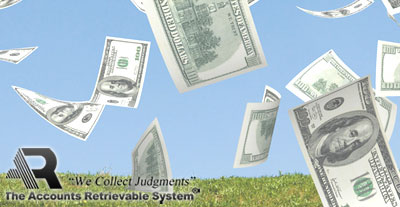A Debt Collection Agency is a type of business that attempts to collect bad debt, including items purchased on credit. It is common for a collection agency to work for a percent of the debt they collect, as these agencies are not actually part of the creditors company, but instead are acting as an agent of the creditor.

Accounts Retrievable Collect Debt Bad Judgements
There are actually quite a few different types of collection agencies, including in-house or first party debt recovery agencies. An in-house debt recovery agency is one that is directly affiliated and often managed by the creditor. In many cases, the creditor will create their own in-house branch to help recapture bad debt.
While an in-house collection agency can provide a lot of benefits for the company, such as a quicker action on accounts, a thorough understanding of the company, less governmental regulation, and a greater incentive to retain the customer’s account, it can take a lot of resources to develop and maintain a credit collections department, let alone be an effective one. For this reason, many companies opt to outsource their debt recovery, using a third-party debt collector.
A third-party bad debt recovery agency is the most common type of collection agency and is the one that is most often thought of when the phrase Debt Collector is used. The term third-party is used because the collection agency was not involved with the original transaction or debt. The account was created by the company, the first party, and the debtor, the second party, so when an outside agency becomes involved, they become the third-party.
It is common for a debt collection agency to receive a percent of the debt collected, which can often vary depending on both the amount of bad debt and how old it is. For instance, a debt that is relatively new might only provide a 10% commission to the debt collector, but one that is much older and several attempts at collection have been made may offer a commission rate of 30%, 40%, or even 50%. of course, this varies by industry and is dependent upon the debt collectors service license agreement with the creditor. In many cases, this is paid when even just a portion of the debt is recovered.
While many collection agencies are paid a commission of the collected debt and are only paid if they are effective at retrieving the bad debt, there are also a number of collections agencies that work on a per action basis. In these cases, they will typically initially offer a soft-collection or pre-collection service, which consists of sending a letter, or letters, urging the debtor to pay their debt to avoid having the collection process initiated. These companies may receive $10 or more per action and after a given amount of time, the account will be subject to hard-collection.
Choosing between an in-house debt collection program and a third-party debt recovery solution involves weighing the advantages and disadvantages of both, as well as understanding the costs associated with implementing a debt recovery program. In many cases, using a professional debt recovery team offers much more flexibility and is more effective, although having in-house debt collection can provide a quicker turn-over time in some cases.
Article Source: Roger Amhurst – www.ezineartice.com
Call Accounts Retrievable System For More Info at (800) 327-4687
